Key takeaways:
- Team dynamics significantly influence collaboration and productivity; understanding individual strengths and fostering open communication enhances teamwork.
- Regular check-ins and collaborative tools (like Slack and Trello) improve communication and accountability within teams.
- Engaging activities such as team-building exercises and hackathons can boost collaboration and reveal hidden talents among team members.
- Project management tools streamline workflows and enhance accountability, while collaborative coding platforms like GitHub facilitate smooth contributions and version control.
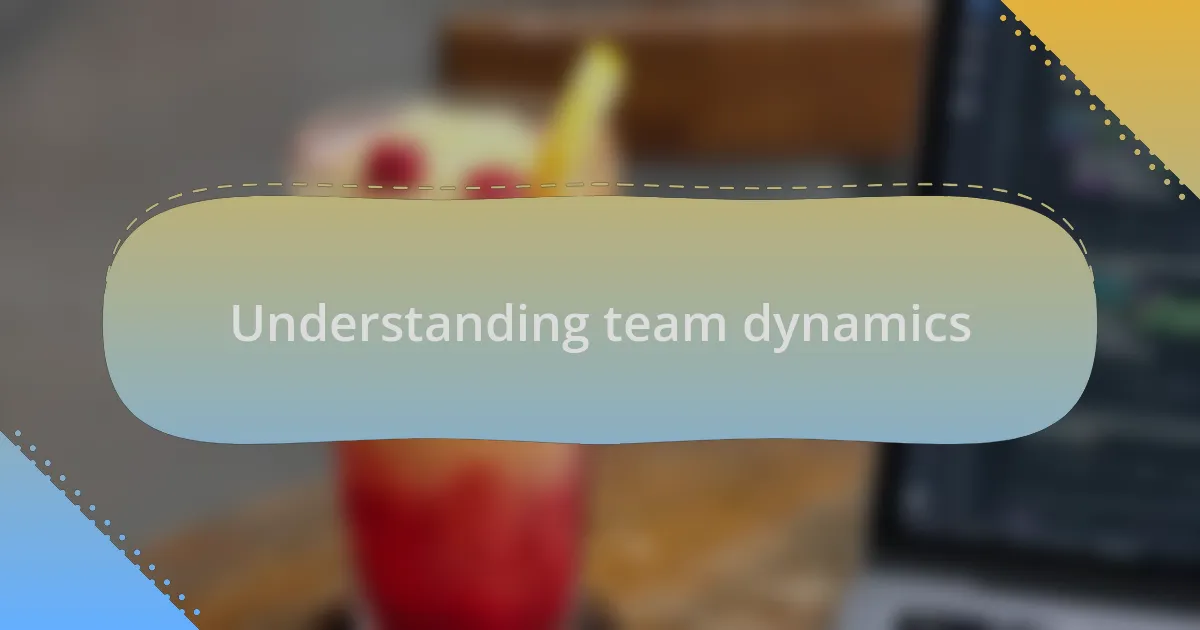
Understanding team dynamics
Team dynamics are the unseen forces that shape how team members interact, collaborate, and achieve shared goals. I’ve experienced firsthand how these dynamics can shift dramatically based on minor changes, such as a new project manager or even a team member’s attitude. Have you ever noticed how a single positive person in a group can uplift everyone? It’s truly profound.
When I reflect on my early experiences in team settings, I recall working on a coding project where our dynamics were off-kilter. There was a sense of competition rather than collaboration, which ultimately hindered our progress. This experience taught me that understanding individual strengths and weaknesses is critical. It makes me wonder: how often do we take the time to recognize what each member brings to the table?
Moreover, the emotional undercurrents of a team can either enhance or detract from productivity. For example, I once tackled a challenge with teammates who were supportive and communicative, and the result was a smooth journey toward our deadline. It shows how fostering open communication can truly enhance team dynamics and foster a sense of belonging. Don’t you think that every team deserves to feel that sense of connection?
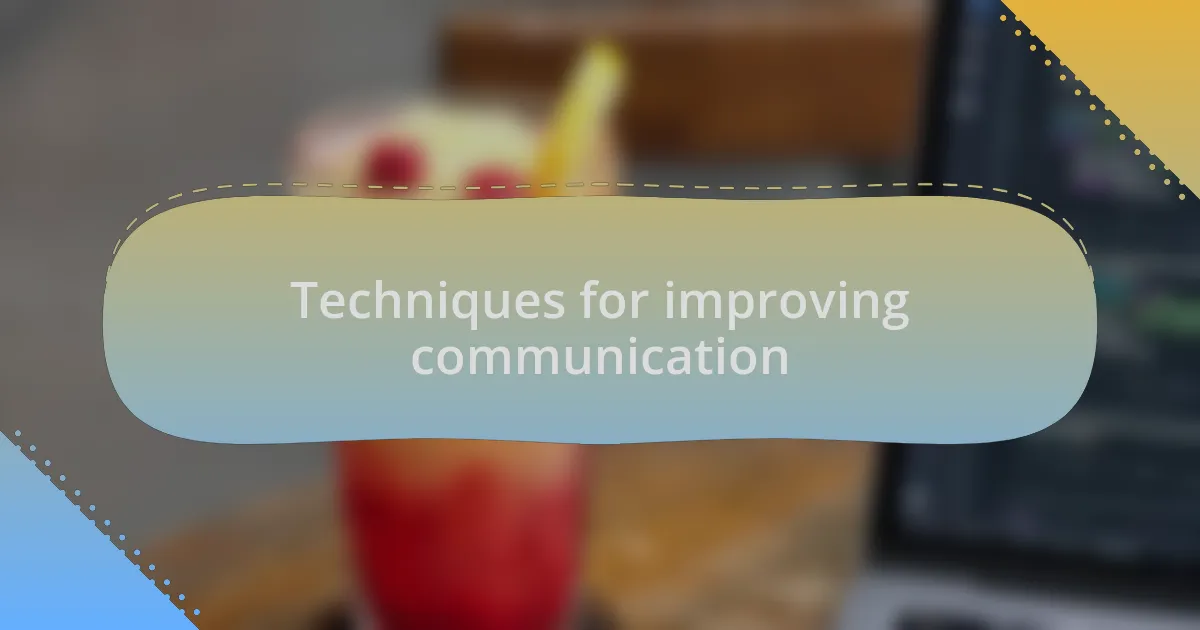
Techniques for improving communication
Effective communication is the lifeblood of any productive team, and I’ve found that regular check-ins can make a world of difference. In one of my previous projects, we implemented weekly stand-ups where everyone shared their progress and challenges. It not only helped to align our efforts but also fostered a sense of accountability among us. Have you ever noticed how a simple meeting can clarify so many misunderstandings?
Another technique I’ve embraced is the use of collaborative tools that facilitate real-time feedback. For instance, utilizing platforms like Slack or Trello can bridge gaps between team members who are remote. I remember a particularly hectic deadline when messages flew back and forth seamlessly, and it felt like we were in the same room, powering through obstacles together. Doesn’t it feel exhilarating to overcome hurdles with your teammates by collaborating effectively?
Lastly, I believe in the power of active listening. During brainstorming sessions, I’ve seen how simply giving space for quieter members to share their thoughts can unveil innovative ideas. I once worked with a developer who had brilliant solutions but often hesitated to voice them. When I started encouraging questions and validating every contribution, our collaboration flourished. How often do we truly listen to the voices in our teams? It’s essential for unlocking the potential that lies within each member.
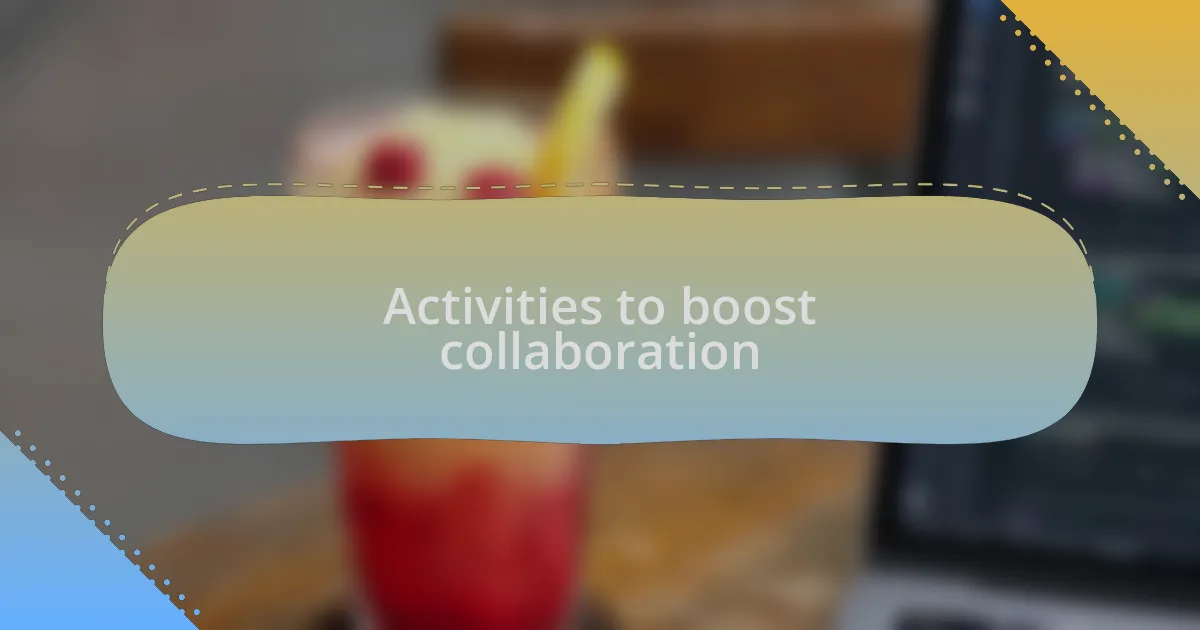
Activities to boost collaboration
Creating activities that promote collaboration can truly transform a team’s dynamics. One effective method I’ve utilized is organizing team-building exercises. I once led a coding escape room challenge, where we had to solve puzzles to “escape” a virtual scenario within a set time. The thrill of working together under pressure not only strengthened our bonds but also revealed each member’s unique strengths. Have you ever seen how a little friendly competition can ignite a spark of teamwork?
Another activity that has yielded positive results is the regular implementation of hackathons. I recall organizing a 24-hour coding sprint, where team members could work on passion projects. The energy was contagious! Watching teammates spark new ideas and collaborate outside of their usual roles was inspiring. It’s amazing how stepping out of the daily grind can unveil hidden talents and foster a sense of community. How do you think innovation thrives in collaborative environments?
Furthermore, I’ve found that sharing personal stories can also enhance collaboration. In one session, I encouraged team members to share their “tech journey” – how they got into programming and the challenges they faced along the way. This vulnerability opened up conversations and deepened our understanding of one another. It’s powerful to realize that behind every coder is a unique story and perspective. Have you considered how connecting on a personal level can elevate a team’s synergy?
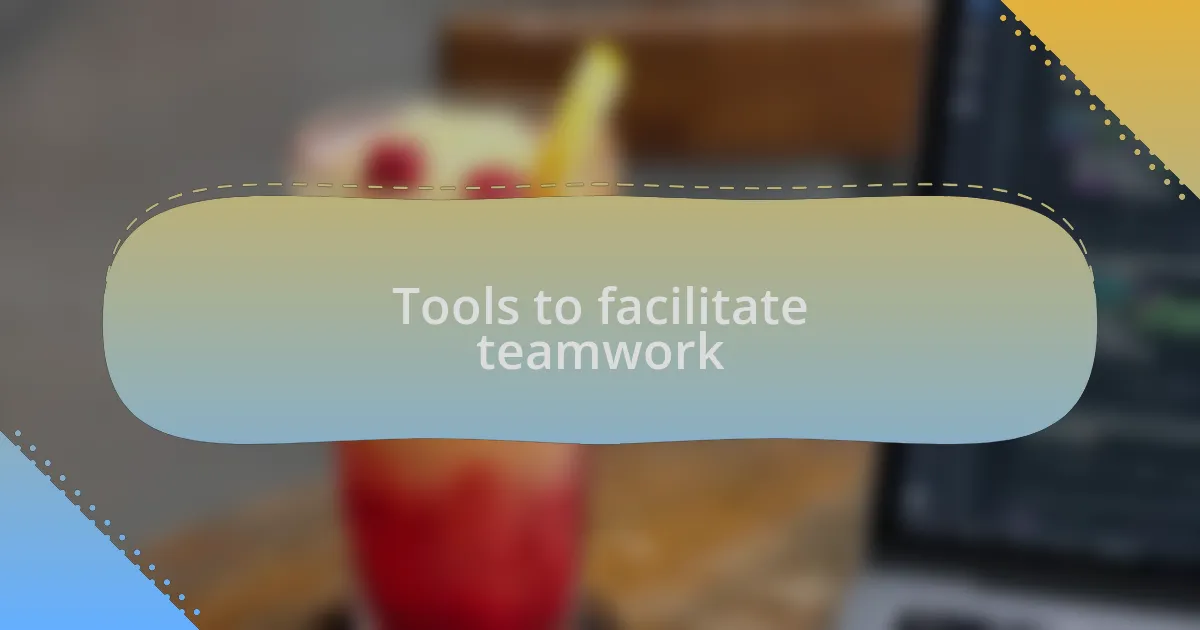
Tools to facilitate teamwork
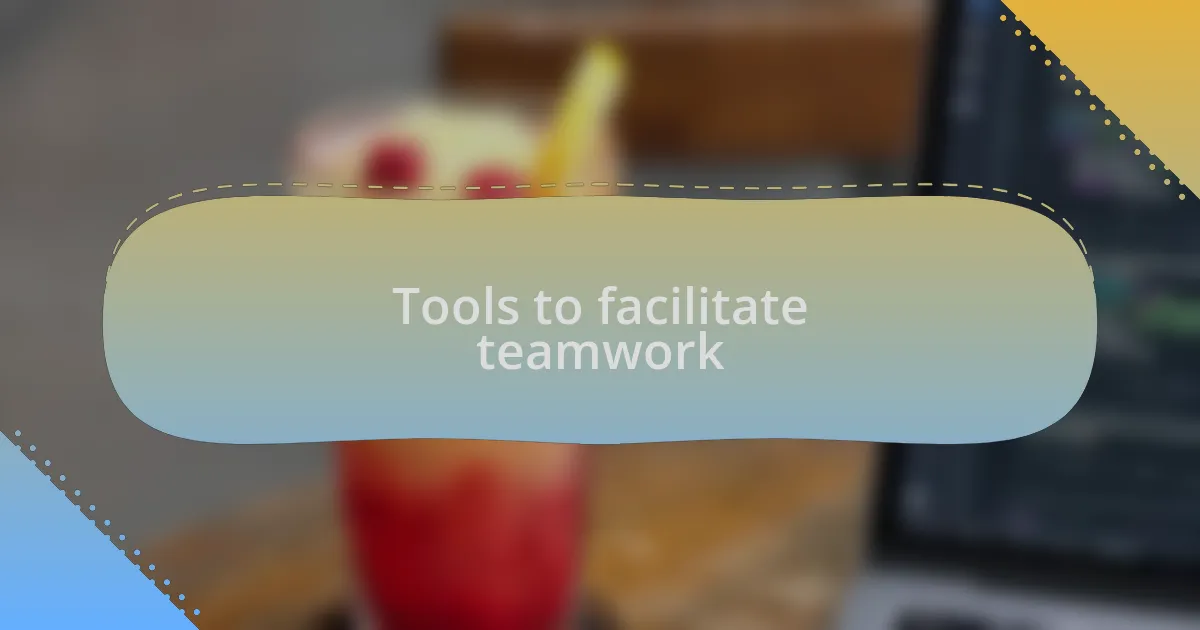
Tools to facilitate teamwork
In my experience, using project management tools like Trello or Asana can significantly streamline team workflows. When my team switched to Trello, we created a shared board that allowed everyone to visualize our progress and responsibilities. It was eye-opening to see how much clarity it brought – no more endless email threads or confusion about who was doing what. Have you thought about how a clear visual layout can enhance accountability?
Another tool that I’ve found invaluable is Slack for communication. I remember a time when our team had to coordinate coding tasks across different time zones. By creating channels for specific projects, we kept discussions organized and relevant. It not only reduced information overload but also fostered a sense of urgency and connectivity. How do you think instant communication impacts your team’s responsiveness?
Lastly, I can’t emphasize enough the importance of collaborative coding platforms like GitHub. During a recent group project, we utilized GitHub for version control, which saved us from messy merge conflicts. It was empowering to see contributions from various team members coming together seamlessly. Have you ever experienced the satisfaction of pushing a shared project live, knowing that everyone played a role in its creation?